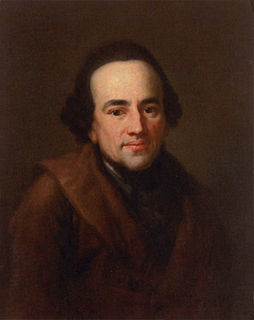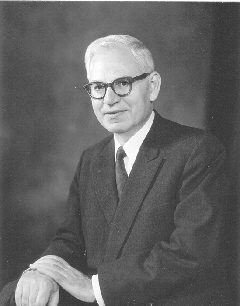A Quote by Leon V. DePoncins
In our decrees, it is definitely proclaimed that religion is a question for the private individual; but whilst opportunists tended to see in these words the meaning that the state would adopt the policy of folded arms, the Marxian revolutionary recognizes the duty of the state to lead a most resolute struggle against religion by means of ideological influences on the proletarian masses.
Related Quotes
Liberalism is really piecemeal socialism, and socialism always attacks three basic social institutions: religion, the family, and private property. Religion, because it offers a rival authority to the state; the family, because it means a rival loyalty to the state; and property, because it means material independence of the state.
If I were a dictator, religion and state would be separate. I swear by my religion. I will die for it. But it is my personal affair. The state has nothing to do with it. The state would look after your secular welfare, health, communications, foreign relations, currency and so on, but not your or my religion. That is everybody's personal concern!
The First Amendment...does not say that in every respect there shall be a separation of Church and State....Otherwise the state and religion would be aliens to each other - hostile, suspicious, and even unfriendly....The state may not establish a 'religion of secularism' in the sense of affirmatively opposing or showing hostility to religion, thus preferring those who believe in no religion over those who do believe.
Now, we know this is what [H.P.] Lovecraft was into. Because he kept talking about how he wasn't interested in religion. In a heaven state there is no religion, meaning that you're seeing the whole thing ... I mean, to worship something means that it's something beyond you, right? In other words, it's not being revealed to you.
How can you have the religion of the sovereign be the religion of the state if the sovereign belongs to many religions? And it's at that point, I think, historically, that you start to see people saying maybe the state should not associate itself with any religion. Maybe there shouldn't be any official religion.
When indeed Religion is kindled into enthusiasm, its force like that of other passions is increased by the sympathy of a multitude. But enthusiasm is only a temporary state of Religion, and whilst it lasts will hardly be seen with pleasure at the helm. Even in its coolest state, it has been much oftener a motive to oppression than a restraint from it.
If a state political organization is founded in part upon a state religion with a dogma based on one or a few 'official' prophets, then shamanism, where every shaman is her or his own prophet, is dangerous to the state. [...] Shamanism, as I said, is not a religion. The spiritual experience usually becomes a religion after politics has entered into it.
Religion is an important institution. A nation without religion cannot survive. Yet it is also very important to note that religion is a link between Allah and the individual believer. The brokerage of the pious cannot be permitted. Those who use religion for their own benefit are detestable. We are against such a situation and will not allow it. Those who use religion in such a manner have fooled our people; it is against just such people that we have fought and will continue to fight. Know that whatever conforms to reason, logic, and the advantages and needs of our people conforms equally to Islam. If our religion did not conform to reason and logic, it would not be the perfect religion, the final religion.
The separation of church and state is necessary partly because if religion is good then the state shouldn't interfere with the religious vision or with the religious prophet. There must be a realm of truth beyond political competence, that's why there must be a separation of churches, but if religion is bad and a bad religion is one that gives an ultimate sanctity to some particular cause. Then religion mustn't interfere with the state - so one of the basic Democratic principles as we know it in America is the separation of church and state.
The "establishment of religion" clause of the First Amendment means at least this: Neither a state nor the Federal Government can set up a church. Neither can pass laws which aid one religion, aid all religions, or prefer one religion over another. Neither can force nor influence a person to go to or to remain away from church against his will or force him to profess a belief or disbelief in any religion.
The state which is regarded as the instrument for universalizing a certain religion must perforce be an ever expanding state. The Islamic state, whose principal function was to put God’s law into practice, sought to establish Islam as the dominant reigning ideology over the entire world….The jihad was therefore employed as an instrument for both the universalization of religion and the establishment of an imperial world state.
































